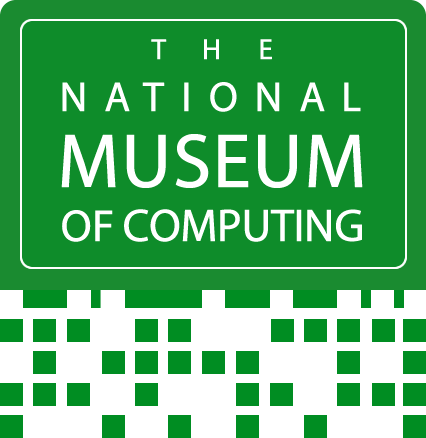Heritage inspires future cyber talent through TNMOC-Qufaro partnership
/Heritage inspires future cyber talent through TNMOC-Qufaro
partnership on the Bletchley Park Estate
The coming generation of cyber-security specialists will benefit from the announcement by The National Museum of Computing (TNMOC) that Qufaro is its exclusive Cyber Education Partner.
For students, educationalists and employers, the partnership is unparalleled: a cyber talent pool attracted and benefiting from Qufaro’s mix of accredited online courses and apprenticeships with insights from cyber history through TNMOC’s long-established heritage at Bletchley Park and world-renowned collection of historic working machines.
On behalf of Qufaro, CEO Budgie Dhanda said, “Qufaro’s success in increasing the cyber talent pool for employers is widely acknowledged and valued. We have worked closely but informally with TNMOC since our establishment and this has proved so productive that the time is right to formalise our partnership to extend our joint working. The complementarity of our organisations in working together in educational and employment terms is extraordinarily powerful – and probably unreproducible anywhere else in the world.”
Andrew Herbert, chairman of TNMOC, said, “The popularity and demand for our Museum’s Learning Programme, which has engaged thousands of students from schools and colleges, demonstrates the growing interest in the development of computing and our digital heritage. The parallel development of cyber security penetrates almost every aspect of today’s society and commerce and, through our partnership with Qufaro, we can enhance and extend our mission to educate and inspire future generations of cyber security specialists as well as engineers and computer scientists.”
Notes To Editors
About Qufaro
Based at the Bletchley Park Estate, Qufaro is a new initiative designed to make it simpler for those with career ambitions in cyber security to access cyber-specific education and innovation opportunities. The company launched the first ever Cyber EPQ (Extended Project Qualification) in 2016. The Cyber EPQ is a City & Guilds accredited online qualification, equivalent to an AS level, and can contribute up to 28 UCAS points for candidates. The programme, sponsored by Deloitte, has proved very popular with schools, teachers, parents and students. In partnership with Global Knowledge Apprenticeships, Qufaro also delivers a Level 4 cyber security apprenticeship and has been leading efforts to develop a new apprenticeship standard for those leaving school after GCSEs.
The name Qufaro stems from a company originally created by the late Tony Sale – one of the critical players who helped save Bletchley Park from demolition in the 1990s and who was responsible for the rebuild of Colossus, the world’s first digital programmable electronic computer and a key part of the codebreaking effort during the Second World War. Frustrated with trying to find a company name that hadn’t already been taken, Tony created a computer program that would select six letters at random, massively reducing the chances that the name would already be in use. Qufaro was the name delivered by the program.
See qufaro.uk for more information.
About The National Museum of Computing
Now fully open Tuesdays to Sundays, 10.30 am to 5.00 pm.
The National Museum of Computing, located on Bletchley Park in Block H, one of England’s ‘irreplaceable places’, is an independent charity housing the world's largest collection of functional historic computers, including reconstructions of the wartime code-breaking Colossus and the Bombe, and the WITCH, the world's oldest working digital computer. The Museum enables visitors to follow the development of computing from the ultra-secret pioneering efforts of the 1940s through the large systems and mainframes of the 1950s, 60s and 70s, and the rise of personal computing in the 1980s and beyond.
The Museum runs a highly successful Learning Programme for schools and colleges and promotes introductions to computer coding amongst young people to inspire the next generation of computer scientists and engineers.
Sponsors of the Museum have included Bletchley Park Science and Innovation Centre, Fujitsu, InsightSoftware.com, Paessler AG, Sophos, Issured, Lenovo, Bloomberg, Ocado Technology, Ceravision, CreateOnline, 4Links, Google UK, IBM, NPL, HP Labs and BCS.
For more information, see www.tnmoc.org and follow @tnmoc on Twitter and The National Museum of Computing on Facebook.
Media contact
Stephen Fleming, Palam Communications
01635 299116
s.fleming@palam.co.uk





